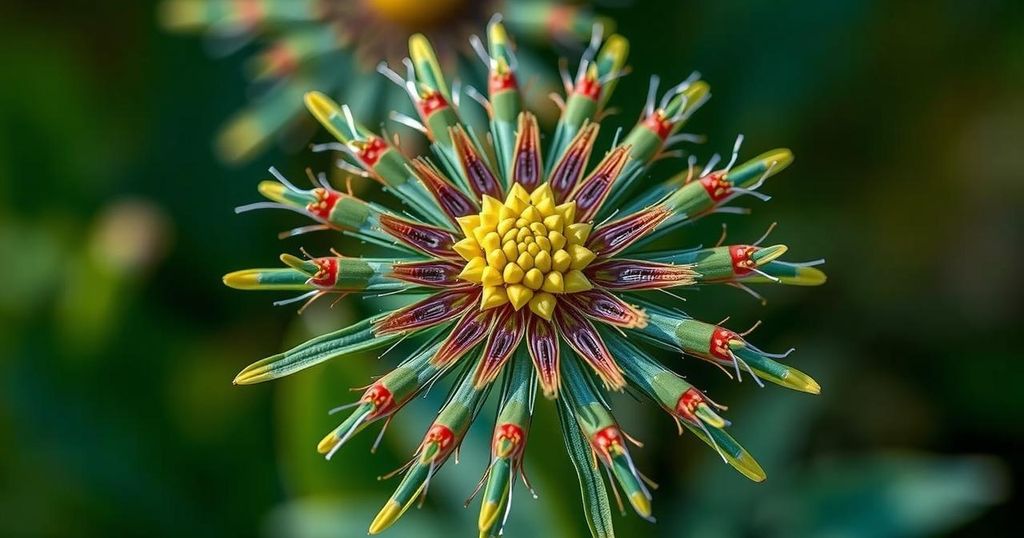Significant Increase in Seed Deposits at ‘Doomsday’ Vault Amid Global Crises

The Svalbard Global Seed Vault has recently received 30,000 new seed samples due to rising fears over climate change and global conflicts affecting food security. Established to protect the genetic diversity of plant species, this facility continues to serve as a vital resource for restoring agricultural life following global disasters.
Recent apprehensions regarding climate change and geopolitical strife have led to a significant increase in seed deposits at the Svalbard Global Seed Vault, also known as the “doomsday vault.” This facility, located on Spitsbergen Island in Norway, has received 30,000 new seed samples from 21 different countries. Constructed to endure catastrophic events, the vault is designed to ensure the preservation of plant species for potential future restoration efforts following global disasters. Stefan Schmitz, Executive Director of the Crop Trust, emphasized the pressing threats posed by climate change and international conflicts, which endanger food security for over 700 million individuals across more than 75 countries. He stated, “Climate change and conflict threaten infrastructure and impact food security for over 700 million people in more than 75 countries worldwide. Gene banks are ramping up efforts to back-up seed collections, and we are proud to support them by providing a safe haven in Svalbard.” The Seed Vault, launched in 2008 as a backup for global gene banks storing the genetic materials of thousands of plant species, maintains its cool temperature through surrounding permafrost. Recent contributions encompass a variety of seeds, including vegetables and herbs from the occupied Palestinian territories and diverse samples from Bolivia. Notably, the vault received seed varieties such as 1,145 types of maize, rice, sesame, and sorghum from Chad, chosen for their resilience to high temperatures and arid conditions, crucial attributes for regions affected by climate change. Other new contributions were made by countries including Bangladesh, Nigeria, Papua New Guinea, and Suriname. While the Seed Vault may have global benefits, it is primarily funded and managed by the Norwegian government, in collaboration with the Crop Trust and the Nordic Genetic Resource Center. Having been constructed at a cost of $8.8 million, the facility allows depositors to securely store seeds for potential reclamation after their loss due to environmental or humanitarian crises. Following the University of San Francisco Xavier’s deposit of seed samples from 125 farming families in Bolivia, the project’s coordinator remarked, “This deposit goes beyond conserving crops; it is about protecting our culture.” Lise Lykke Steffensen, Executive Director of the Nordic Genetic Resource Center, highlighted the importance of genetic diversity for humanity’s future challenges, affirming the significant role of the Seed Vault in securing valuable seed collections in light of global uncertainties.
The Svalbard Global Seed Vault serves as a global backup for the world’s agricultural biodiversity, ensuring that essential seed varieties can be preserved against threats such as natural disasters, climate change, and geopolitical tensions. Opened in 2008, this facility safeguards more than one million seed samples from various plant species, actively supporting international efforts to maintain food security. Given the increasing frequency and intensity of climate-related events and socio-political instability, the relevance of this seed bank has never been more pronounced. It stands as a crucial resource for the preservation of plant genetic material, allowing for the recovery and restoration of food supplies in the aftermath of catastrophic events.
The substantial increase in seed deposits at the Svalbard Global Seed Vault accentuates the urgent need for global food security in the face of climate change and conflict. With contributions from various countries, the Seed Vault continues to play an integral role in preserving the genetic diversity of crops essential for the future of agriculture. By providing a secure repository for these vital resources, it not only supports agricultural resilience but also safeguards cultural heritage. The collaboration between global partners reflects a collective acknowledgment of the pressing challenges our world faces, thus ensuring that humanity will have the means to adapt and thrive in the ensuing years.
Original Source: global.chinadaily.com.cn





